
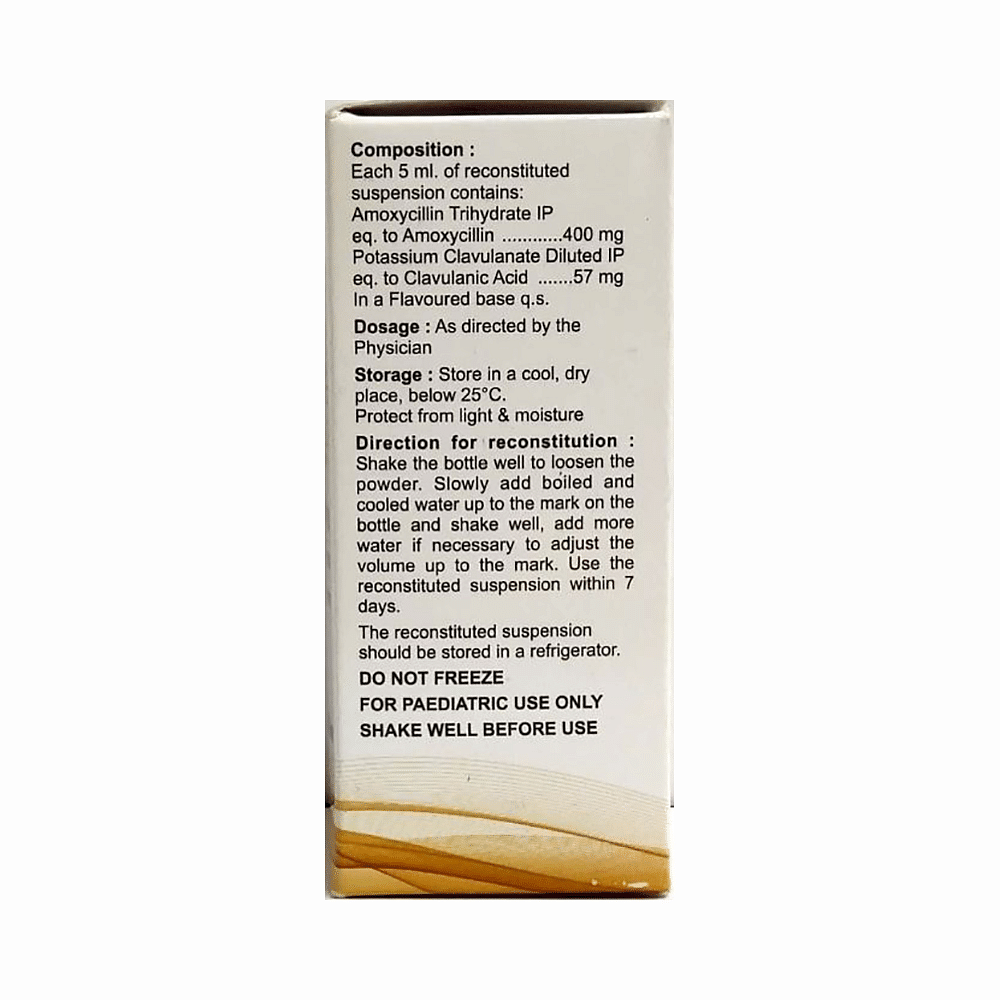
Coeamox Forte Dry Syrup
Manufacturer
Koye Pharmaceuticals Pvt ltd
Salt Composition
Amoxycillin (400mg/5ml) + Clavulanic Acid (57mg/5ml)
Key Information
Short Description
Coeamox Forte Dry Syrup is an antibiotic medicine that helps treat bacterial infections of the ear, nose, throat, chest, lungs, teeth, skin, and urinary tract.
Dosage Form
Oral Suspension
Introduction
Coeamox Forte Dry Syrup is an antibiotic medicine that helps treat bacterial infections of the ear, nose, throat, chest, lungs, teeth, skin, and urinary tract. It is capable of killing bacteria that have become resistant to other therapies and thus also helps treat tuberculosis that is resistant to other treatments.
Directions for Use
Your child must complete the entire course of antibiotics. Stopping too soon may cause the bacteria to multiply again or cause another infection.
How it works
Coeamox Forte Dry Syrup is an antibiotic. It has two active agents amoxycillin and clavulanic acid. Amoxycillin works by preventing the formation of the bacterial protective covering (cell wall) essential for the survival of the bacteria. Whereas clavulanic acid serves a special purpose of inhibiting an enzyme (beta-lactamase) that is produced by resistant bacteria. This makes the combination of amoxycillin and clavulanic acid an effective line of treatment for many types of infections.
Quick Tips
Your child must complete the entire course of antibiotics. Stopping too soon may cause the bacteria to multiply again or cause another infection. Encourage your child to drink plenty of water in case diarrhea develops as a side effect. Never give Coeamox Forte Dry Syrup until and unless prescribed by the doctor. Do not give Coeamox Forte Dry Syrup to treat common cold and flu-like symptoms caused by viruses. Check ‘expiry’ before giving Coeamox Forte Dry Syrup to your child. Immediately discard all the expired medicines.
Related Medicines
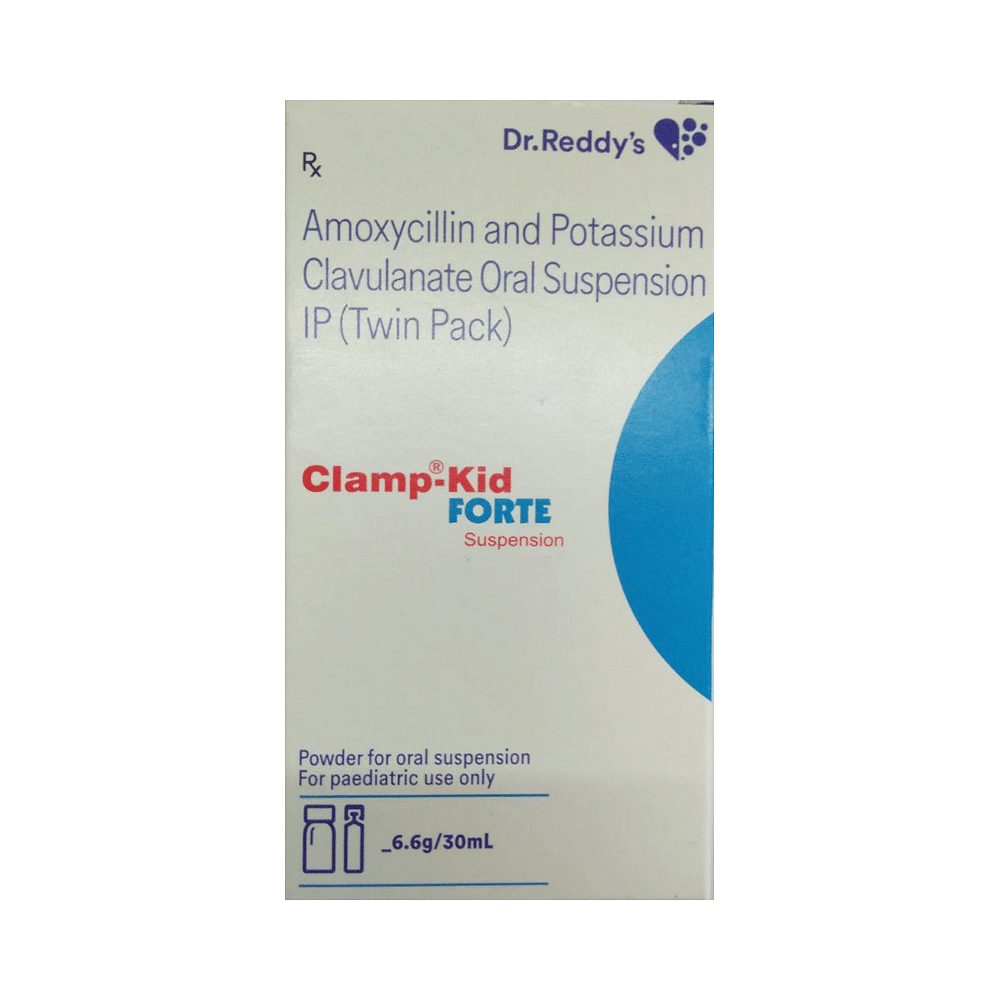
Clamp Kid Forte Suspension

Moxikind-CV Forte Dry Syrup
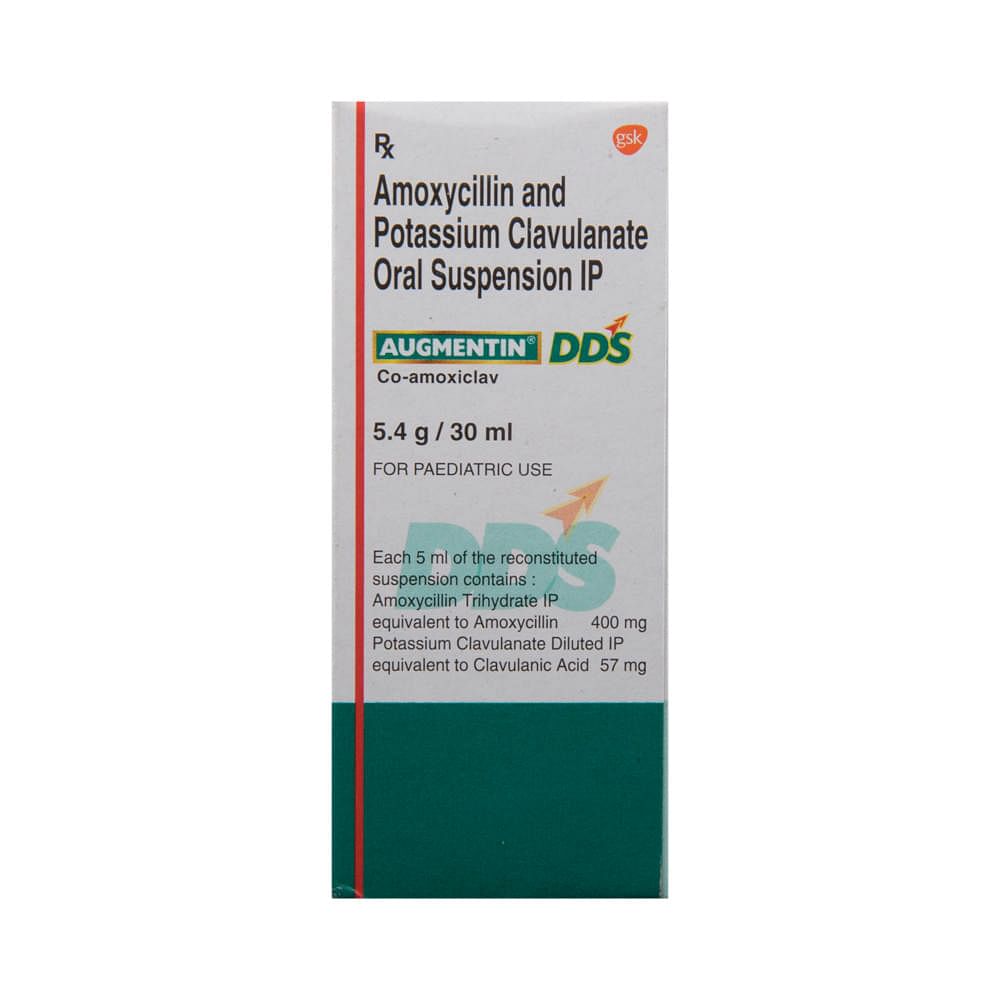
Augmentin DDS Suspension
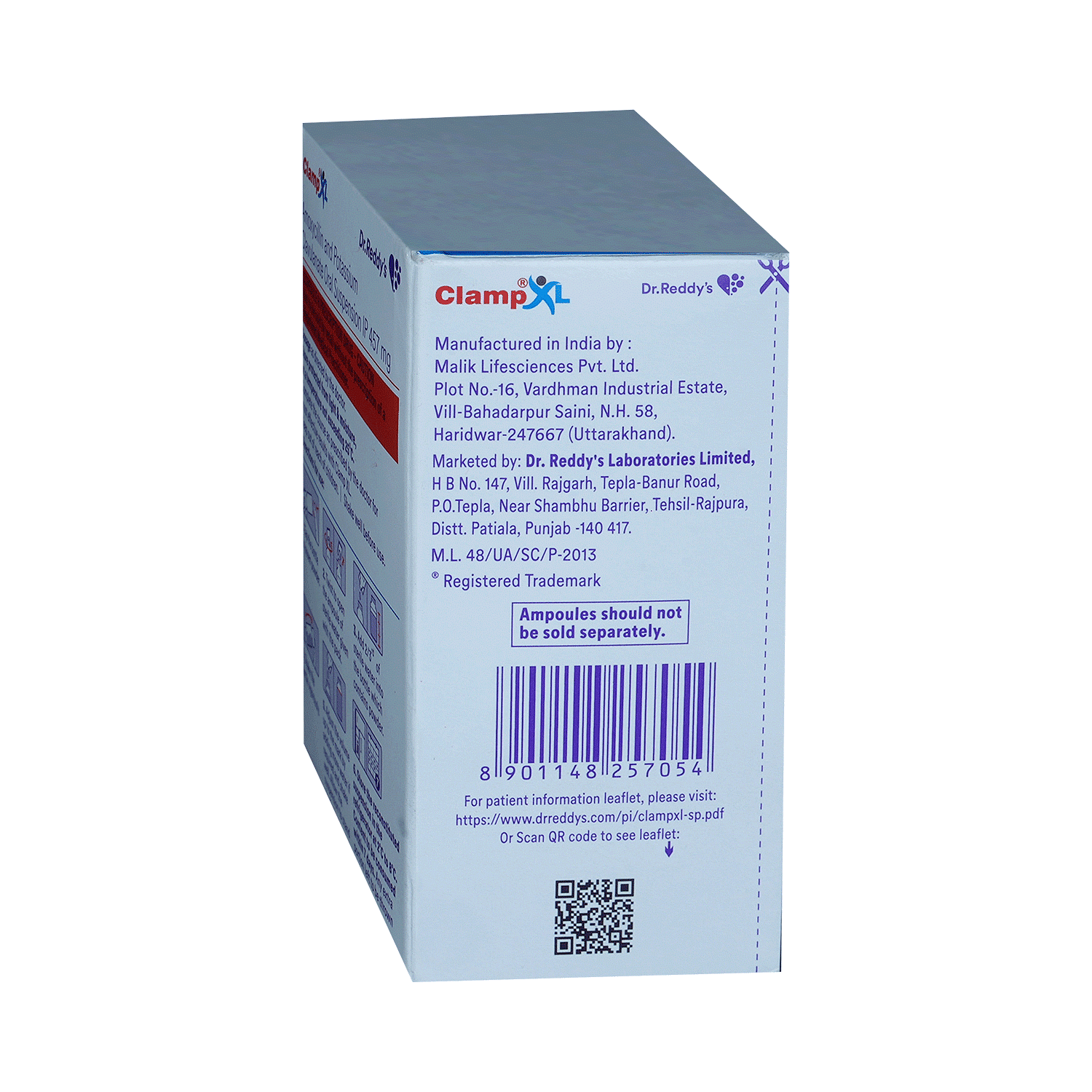
Clamp Xl Suspension

Augliff-DS Dry Syrup

Moxireta-Duo Dry Syrup

Chemross-Duo 457mg Dry Syrup

Acdok CV Duo Oral Suspension
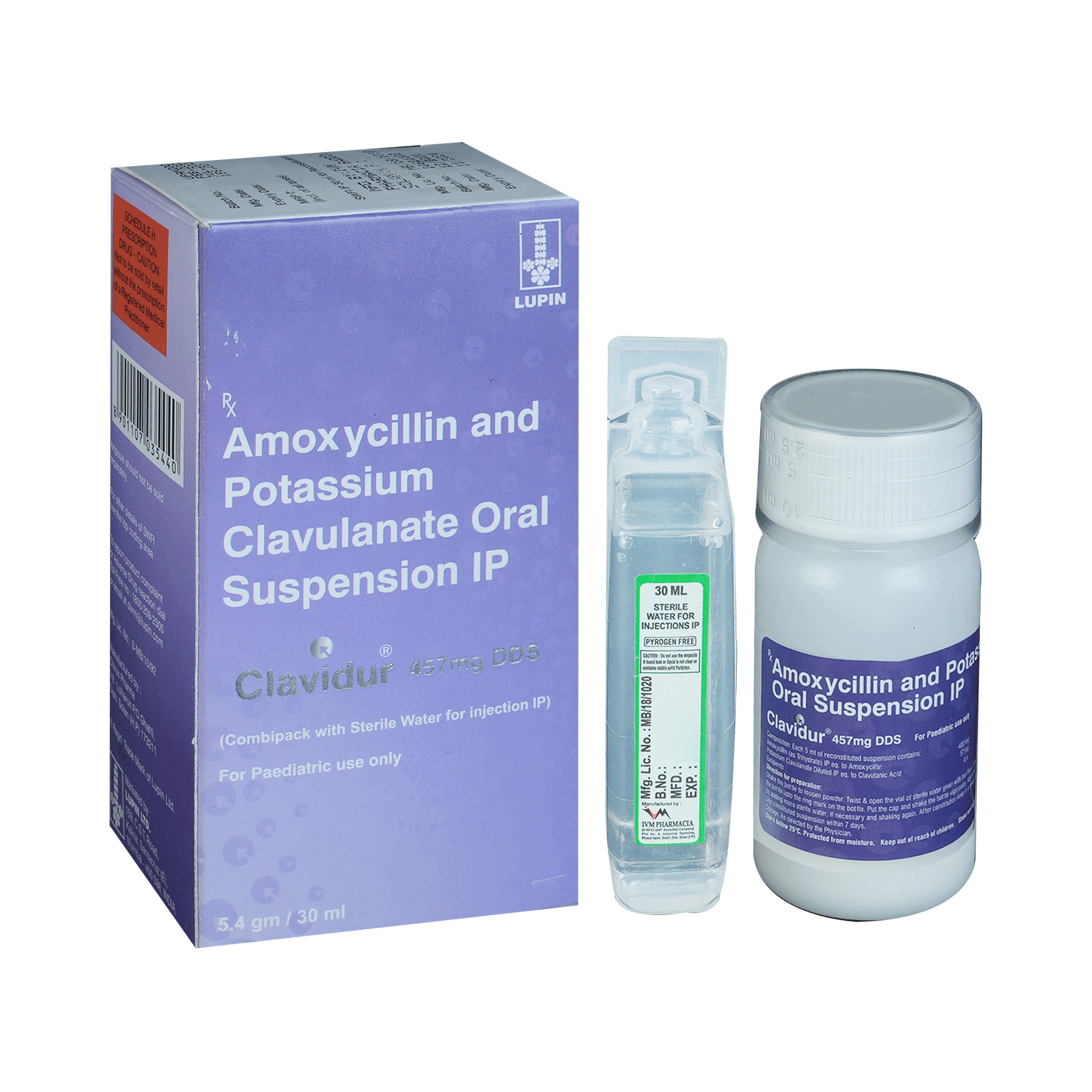
Clavidur 457mg DDS Oral Suspension

Gladyclav Forte Oral Suspension
Frequently asked questions
Can other medicines be taken at the same time as Coeamox Forte Dry Syrup?
Coeamox Forte Dry Syrup may interact with other medications or substances. It is essential to inform your child's doctor about all other medications they are taking before starting Coeamox Forte Dry Syrup. Additionally, it is important to check with your child's doctor before administering any medication to your child.
Can I get my child vaccinated while on treatment with Coeamox Forte Dry Syrup?
Antibiotics do not typically interfere with the ingredients in vaccines or cause adverse reactions in children who have recently received one. However, it is crucial to note that children taking antibiotics should avoid vaccination until they are completely recovered from the illness. Once your child feels better, they can receive the vaccine.
Which lab tests may my child undergo while on long-term treatment with Coeamox Forte Dry Syrup?
Periodically, during prolonged therapy, doctors may monitor kidney and liver function tests to assess your child's condition.
Can I give a higher than the recommended dose of Coeamox Forte Dry Syrup to my child?
Giving a higher than prescribed dosage of this medicine can increase the risk of adverse effects. If your child experiences increased symptoms, consult your doctor for reevaluation.
Can I stop giving Coeamox Forte Dry Syrup to my child when the symptoms are relieved?
No, do not stop giving this medicine until the complete treatment course is finished, even if you feel better. The symptoms may improve before the infection is fully cured. Therefore, continue administering the medication as prescribed by your doctor.
Can Coeamox Forte Dry Syrup cause diarrhea?
Yes, Coeamox Forte Dry Syrup can lead to diarrhea. It is an antibiotic that kills harmful bacteria. Moreover, the medicine may disrupt beneficial bacteria in your child's stomach and contribute to diarrhea. If diarrhea occurs, encourage them to drink plenty of fluids. Consult a doctor if diarrhea persists and notice signs of dehydration like infrequent urination with dark-colored and strong-smelling urine. Do not administer any other medication without consulting a doctor.
Do all viral common colds result in secondary bacterial infection?
In most cases, bacterial infections do not follow viral infections. Notably, administering antibiotics during a viral infection can increase the risk of developing side effects. Therefore, only use antibiotics after consulting your child's doctor.
The mucus coming out of my child’s nose is yellow-green. Is it a sign of a bacterial infection?
Yellow or green mucus in the nose does not automatically indicate that antibiotics are required. During a common cold, mucus may thicken and change from clear to yellow or green. Symptoms usually last for 7 to 10 days.
Is there any sign which shows my child needs immediate medical attention?
You must contact your child's doctor immediately if they experience serious allergic reactions (breathing difficulties, skin rashes), gastrointestinal problems (diarrhea), and liver damage (weakness, pallor, vomiting). While rare, these side effects pose a significant threat and require expert intervention.


